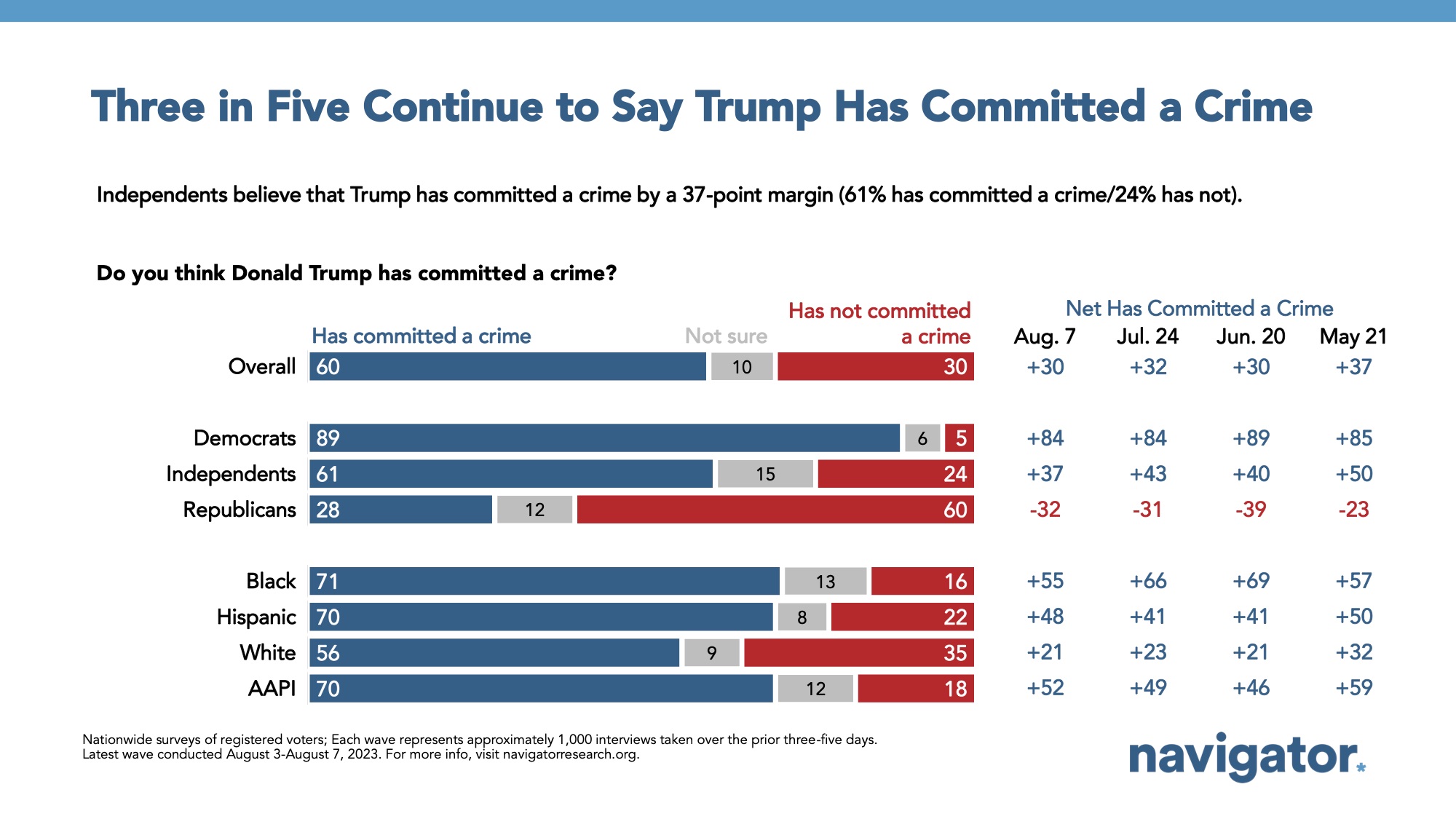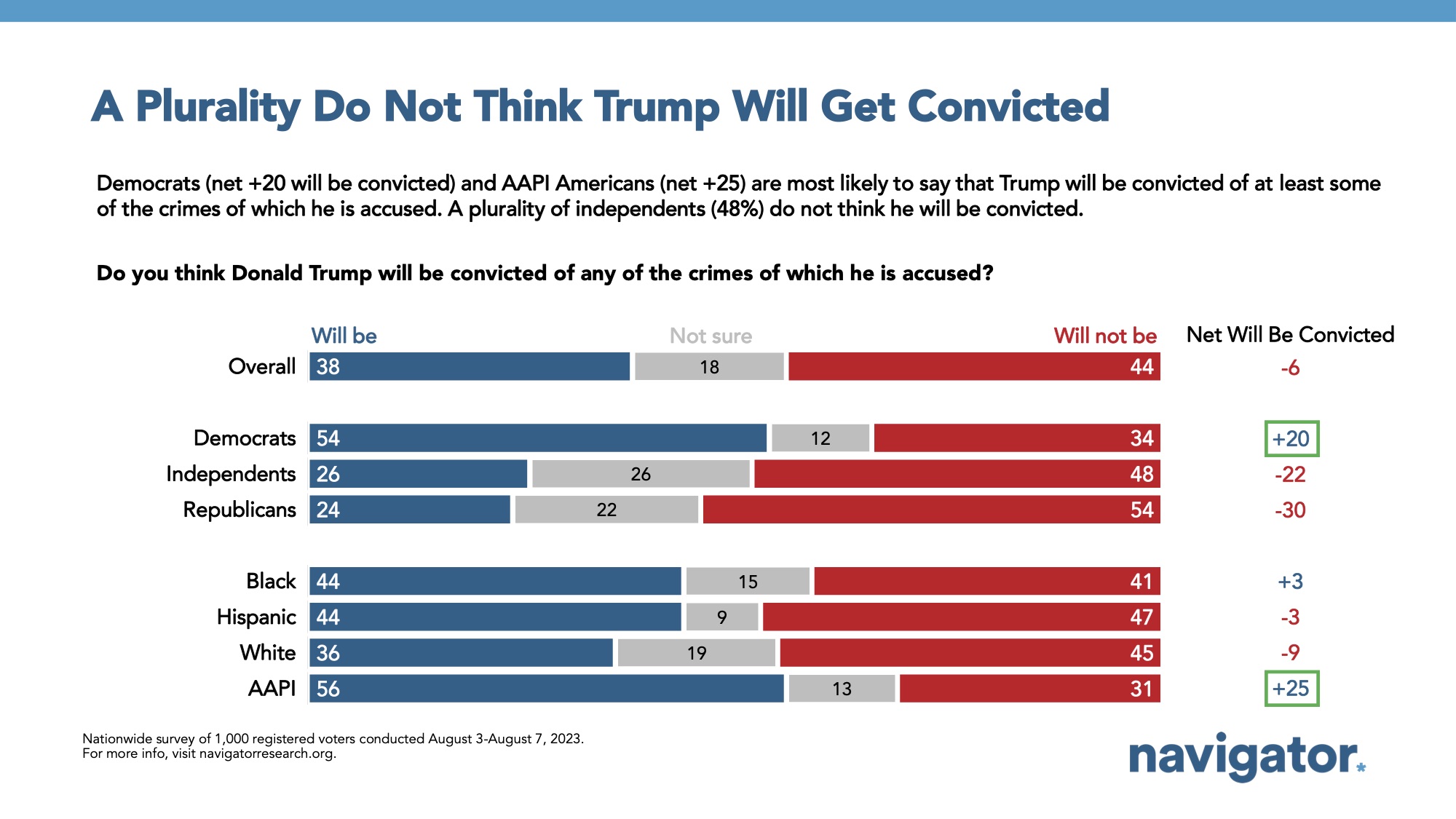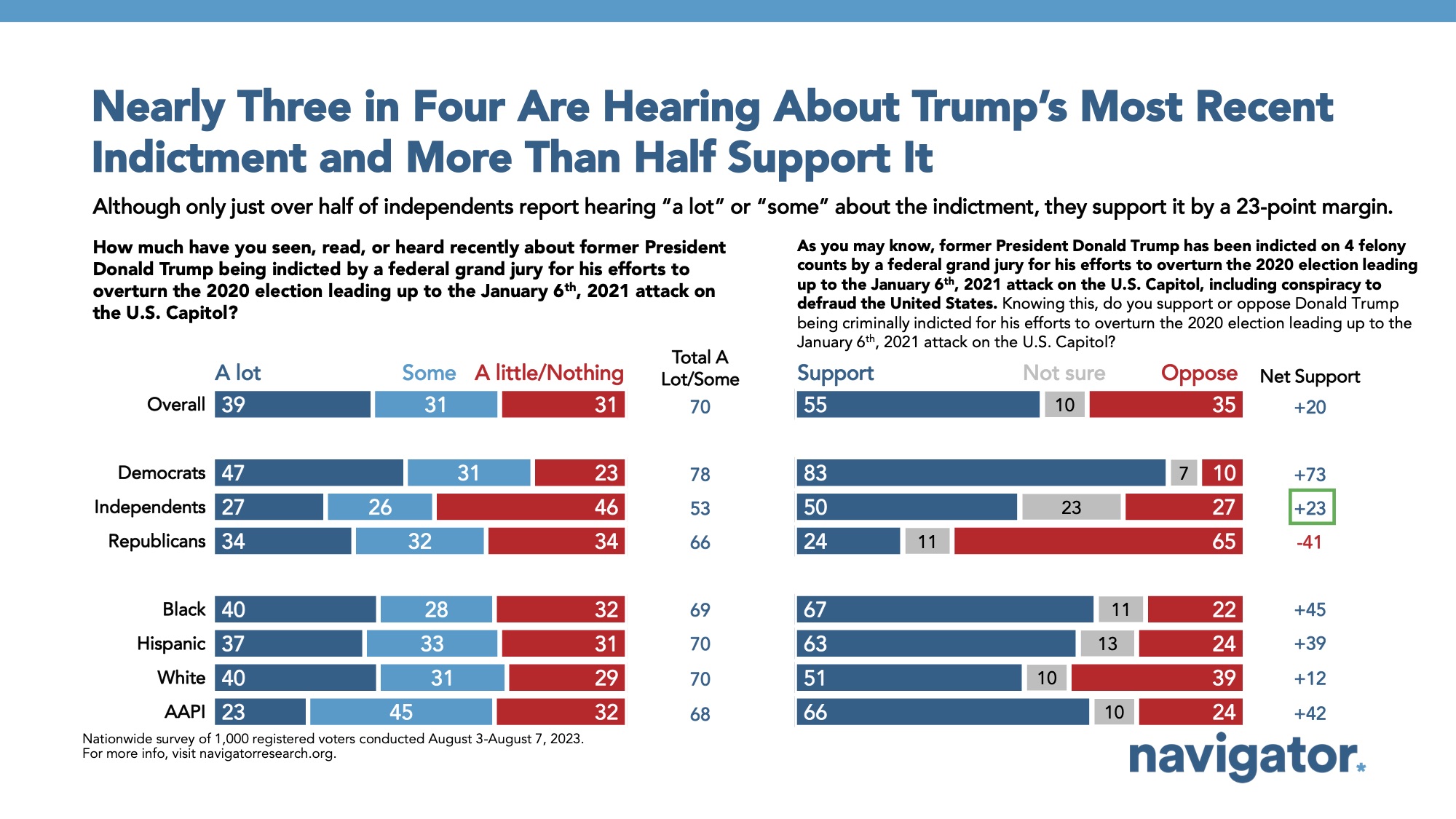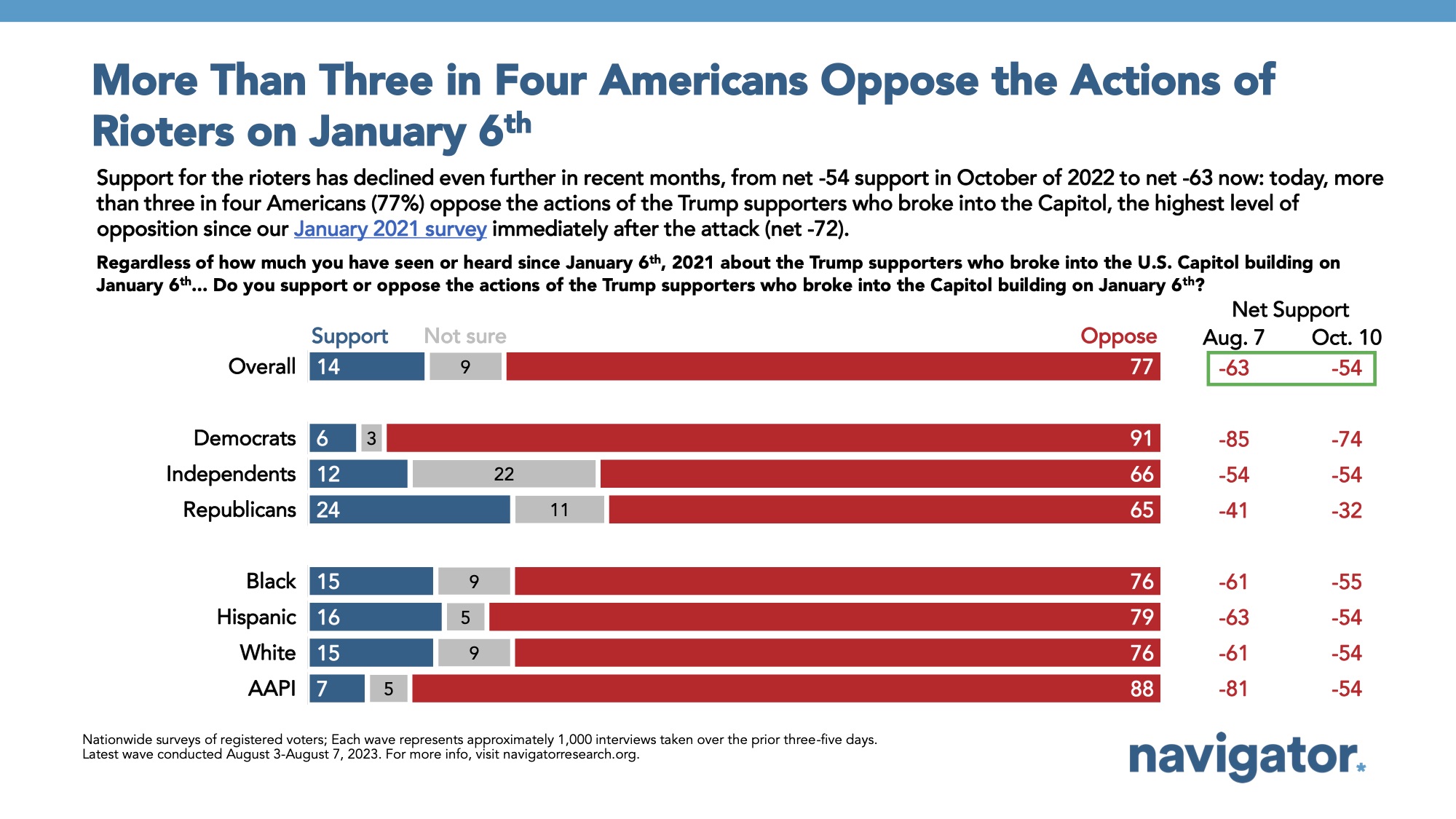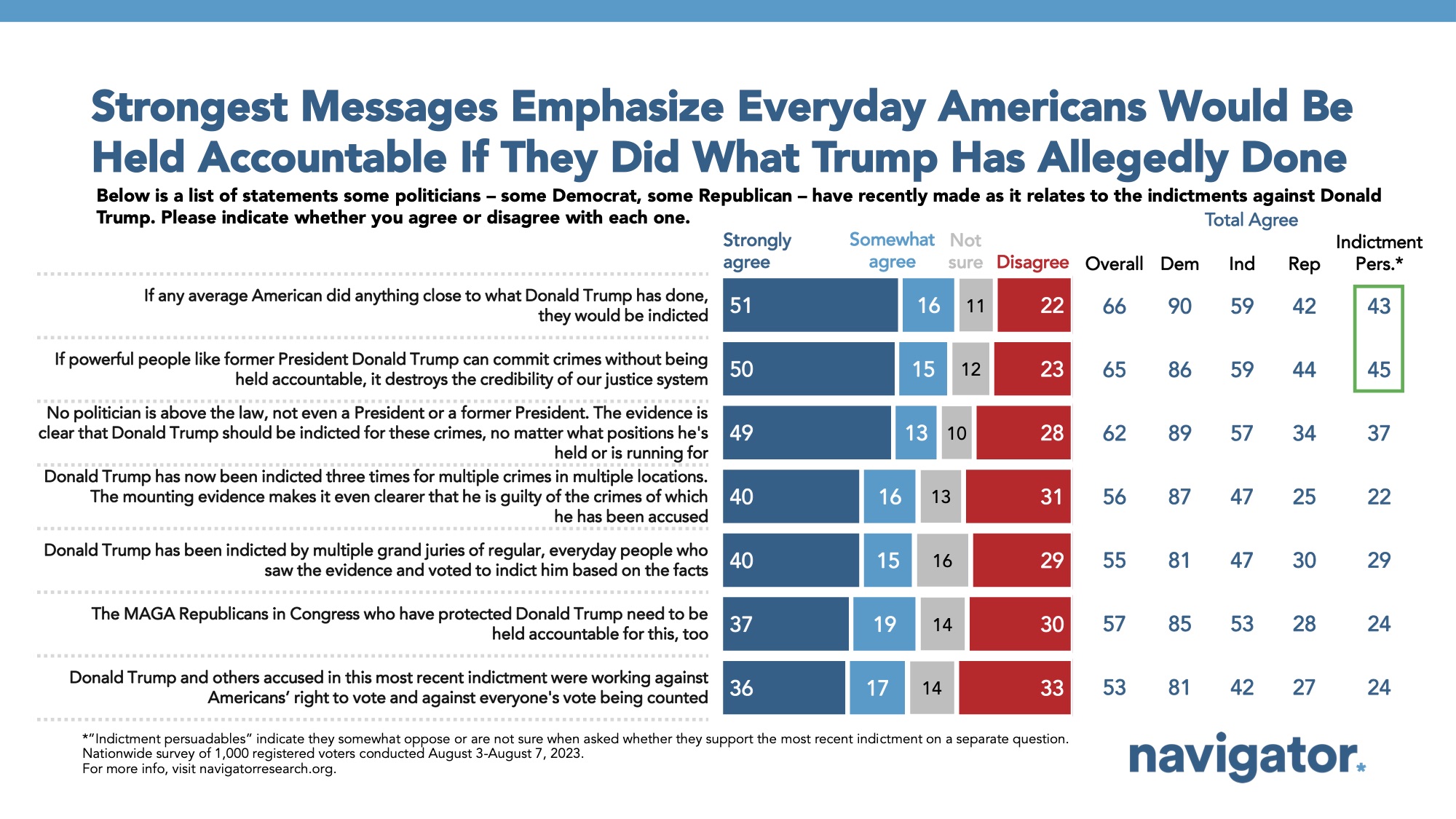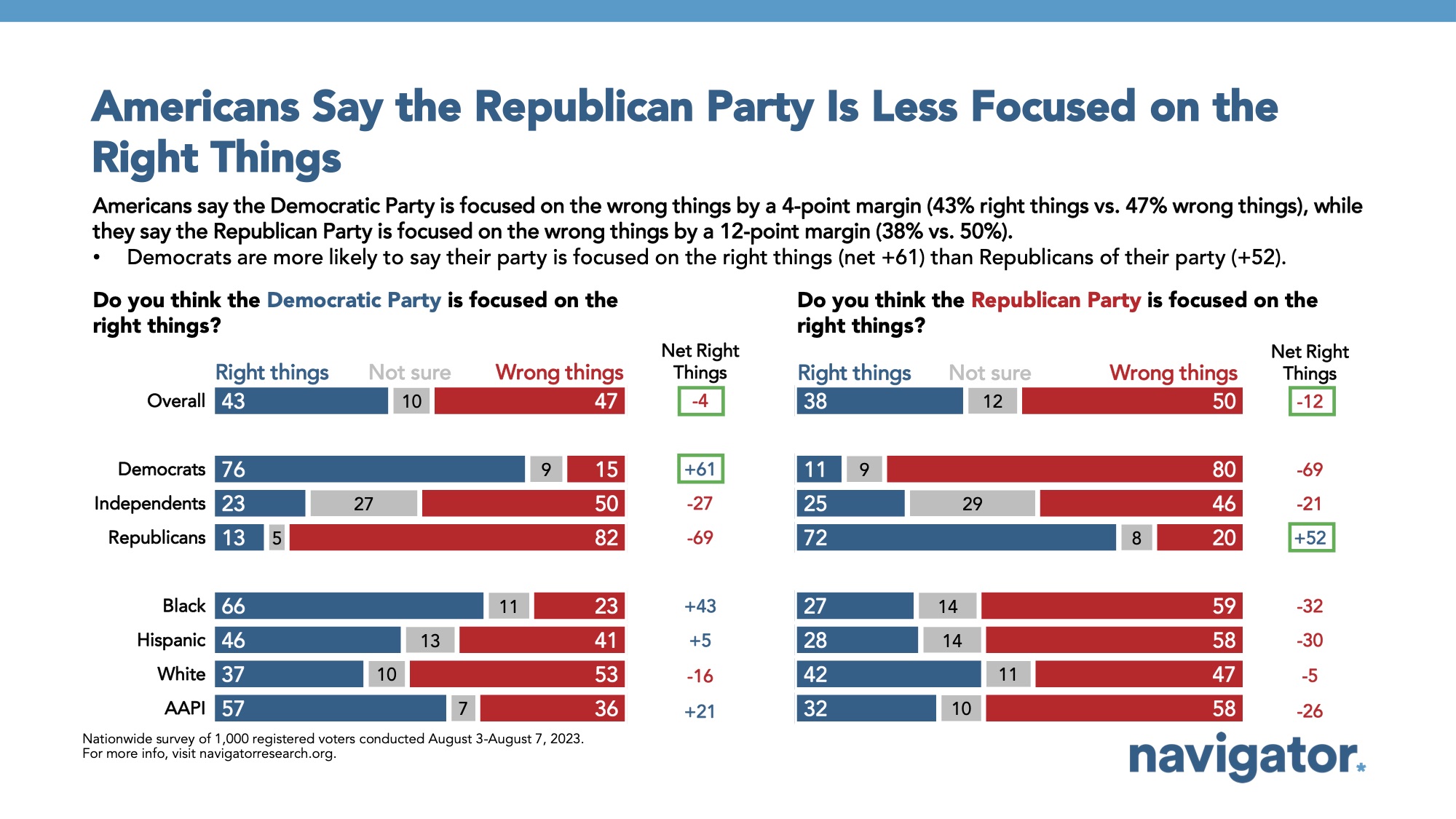Trump’s Latest Indictment: A Guide for Advocates
This Navigator Research report contains polling data on Americans’ latest perceptions of former President Donald Trump amid his latest indictment, including the share who believe he has committed a crime, whether Americans view the latest indictment over efforts to overturn the election as more serious than previous charges, and which statements regarding the indictments Americans most agree with.
Three in five Americans continue to believe Donald Trump has committed a crime, although a smaller share believe he will be convicted of any of the crimes of which he is accused.
60 percent of Americans believe Donald Trump has committed a crime, including 43 percent who believe he has “definitely committed a crime.” This belief is shared among nine in ten Democrats (89 percent), three in five independents (61 percent), and nearly three in ten Republicans (28 percent), including 40 percent of non-MAGA Republicans (Republicans who do not identify with the MAGA movement).
- However, a plurality of Americans believe Trump will not be convicted of any of the crimes of which he is accused (net -6; 38 percent will be – 44 percent will not), with 18 percent of Americans who are unsure. Democrats are most likely to believe Trump will be convicted (54 percent) compared to just one in four independents (26 percent) and Republicans (24 percent).
By a 20-point margin, a majority of Americans support Donald Trump being indicted for his efforts to overturn the 2020 election.
By a 20-point margin, a majority of Americans support Donald Trump’s latest indictment when described as “4 felony counts by a federal grand jury for his efforts to overturn the 2020 election leading up to the January 6th 2021 attack on the U.S Capital, including conspiracy to defraud the United States” (55 percent support – 35 percent oppose). Support is driven by more than four in five Democrats (net +73; 83 percent support – 10 percent oppose), half of independents (net +23; 50 percent support – 27 percent oppose), and one in four Republicans (net -41; 24 percent support – 65 percent oppose). Even among more conservative constituencies, there are significant shares that support Trump’s indictment for his efforts to overturn the election, including a plurality of white college-educated Americans (net +6; 47 percent support – 41 percent oppose), more than two in five Americans who live in rural communities (net -1; 43 percent support – 44 percent oppose) and Fox News viewers (net -10; 40 percent support – 50 percent oppose), and more than a third of white evangelicals (net -16; 37 percent support – 53 percent oppose).
- Three in four Americans oppose the actions of the Trump supporters who broke into the U.S Capitol building on January 6th (net -63; 14 percent support – 77 percent oppose), including nine in ten Democrats (91 percent), and two in three independents (66 percent) and Republicans (65 percent). This is the highest level of opposition to the events of that day in Navigator’s tracking since our survey immediately following the insurrection when it was conducted January 8-11, 2021 (net -72; 12 percent support – 84 percent oppose).
- 41 percent of Americans believe this charge is more serious compared to the previous, with one in four who believe it is “much more serious” (26 percent), compared to just 15 percent who say it is less serious); a plurality of Americans are unsure whether these charges are more or less serious (44 percent).
In assessing statements made about Trump’s most recent indictment, an overwhelming majority of Americans agree on statements that center around no one being “above the law” and upholding the credibility of our justice system.
66 percent of Americans agree with the statement “If any average American did anything close to what Donald Trump has done, they would be indicted” (66 percent agree, 51 percent “strongly” agree) and “if powerful people like former President Donald Trump can commit crimes without being held accountable, it destroys the credibility of our justice system” (65 percent agree, 50 percent “strongly” agree), including pluralities of Republicans who agree with each statement (42 percent and 44 percent, respectively). Other statements widely agreed upon include:
- No politician is above the law, not even a President or a former President. The evidence is clear that Donald Trump should be indicted for these crimes, no matter what positions he’s hold or is running for (62 percent agree, including 49 percent who “strongly” agree);
- Donald Trump has now been indicted three times for multiple crimes in multiple locations. The mounting evidence makes it even clearer that he is guilty of the crimes of which he has been accused (56 percent agree, including 40 percent who “strongly” agree); and,
- Donald Trump has been indicted by multiple grand juries of regular everyday people who saw the evidence and voted to indict him based on the facts (55 percent agree, including 40 percent who “strongly” agree).
More Americans say Democrats are focused on the right things compared to Republicans.
By 12 points, more Americans think the Republican Party is focused on the wrong things (net -12; 38 percent right things – 50 percent wrong things) compared to the Democratic Party, which is narrowly underwater at net -4 (43 percent right things – 47 percent wrong things). The share who feel Republicans are focused on the wrong things has increased since late April (from net -5 to net -12).

